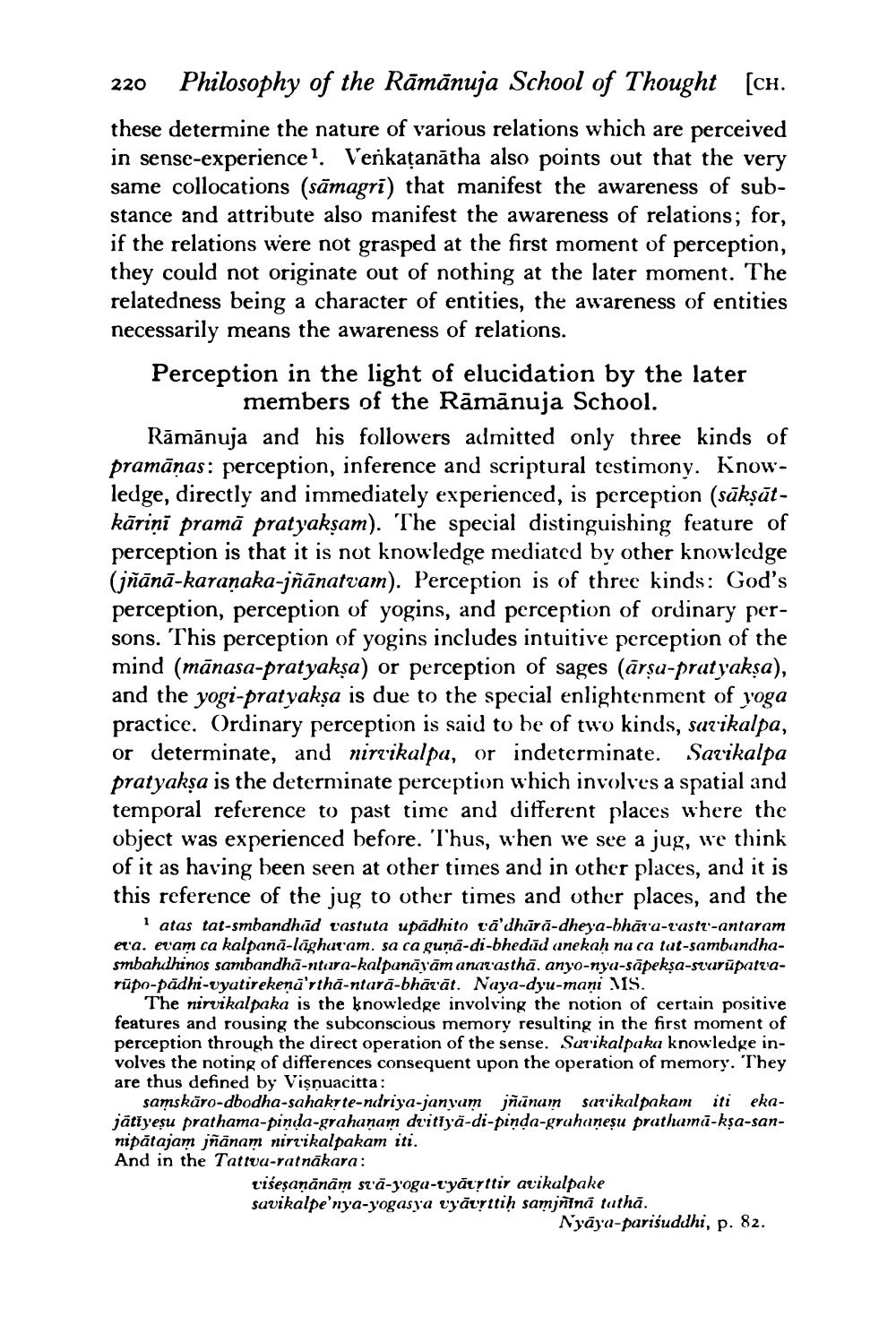________________
220 Philosophy of the Rāmānuja School of Thought (ch. these determine the nature of various relations which are perceived in sense-experience?. Venkatanātha also points out that the very same collocations (sāmagri) that manifest the awareness of substance and attribute also manifest the awareness of relations; for, if the relations were not grasped at the first moment of perception, they could not originate out of nothing at the later moment. The relatedness being a character of entities, the awareness of entities necessarily means the awareness of relations. Perception in the light of elucidation by the later
members of the Rāmānuja School. Rāmānuja and his followers admitted only three kinds of pramānas: perception, inference and scriptural testimony. Knowledge, directly and immediately experienced, is perception (sākṣātkāriņi pramā pratyakşam). The special distinguishing feature of perception is that it is not knowledge mediated by other knowledge (jñānā-karanaka-jñānatvam). Perception is of three kinds: God's perception, perception of yogins, and perception of ordinary persons. This perception of yogins includes intuitive perception of the mind (mānasa-pratyaksa) or perception of sages (ārşu-pratyaksa), and the yogi-pratyakṣa is due to the special enlightenment of yoga practice. Ordinary perception is said to be of two kinds, savikalpa, or determinate, and nirvikalpa, or indeterminate. Savikalpa pratyakṣa is the determinate perception which involves a spatial and temporal reference to past time and different places where the object was experienced before. Thus, when we see a jug, we think of it as having been seen at other times and in other places, and it is this reference of the jug to other times and other places, and the
i atas tat-smbandhad vastuta upādhito rā'dhura-dheya-bhāra-rasti-antaram eta. eram ca kalpanā-lāghat'am. sa ca gunā-di-bhedad anekah na ca tat-sambandhasmbahihinos sambandhā-ntara-kalpanāyām anat'asthā. anyo-nya-sāpeksa-svarūpatvarūpo-pādhi-vyatirekenā'rthă-ntara-bhāvāt. Naya-dyu-mani VS.
The nirvikalpaka is the knowledge involving the notion of certain positive features and rousing the subconscious memory resulting in the first moment of perception through the direct operation of the sense. Sarikalpaka knowledge involves the noting of differences consequent upon the operation of memory. They are thus defined by Vişnuacitta:
samskāro-dbodha-sahakrte-ndriya-janvam jñānam sarikalpakam iti ekajātiyesu prathama-pinda-grahanam drittyä-di-pinda-grahanesu prathama-kşa-sannipātajam jñānam nirvikalpakam iti. And in the Tattuu-ratnākara:
risesanānām stā-yoga-t'yātyttir avikalpake savikalpe'nya-yogasya vyāurttih samjainā tathā.
Nyaya-parisuddhi, p. 82.




